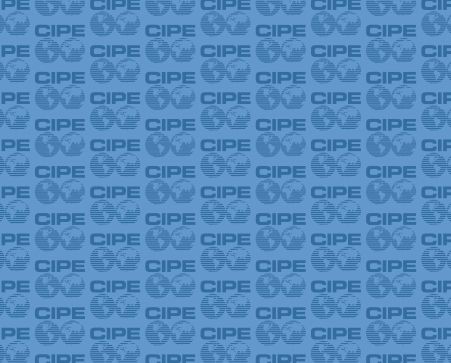 By Jasper Wong, honorable mention in the CIPE 2013 Blog Competition. Read the rest of the winning entries here.
By Jasper Wong, honorable mention in the CIPE 2013 Blog Competition. Read the rest of the winning entries here.
In this decade, perhaps the defining story of global significance is the rise of China in the global economy as it displaces Japan to become the world’s second biggest economy. It is no coincidence then that the prevailing view that democracy should go hand-in-hand with development was seriously challenged at the time as China’s economic success overshadowed U.S. culpability in the Global Financial Crisis (some say, Western Financial Crisis), which saw the “largest and sharpest drop in economic activity of the modern era.”
Yet China’s development wasn’t the first to challenge the link between economic and political freedom, as it sits fittingly in the context of East Asia’s developmental trajectory, most exemplified by the phenomenon of the Four Asian Tigers during the 1970s and 1980s. Similarly, the accompanying story to their remarkable growth was the political environment in which growth took place under authoritarian leaders like Park Chung Hee and Lee Kuan Yew.
While South Korea and Taiwan have gained strides in being more democratic, Singapore appears to be stuck in limbo, classified as a “hybrid regime” and ranked at 81st position, well below countries like Indonesia and Malaysia in the latest 2012 Democracy Index published by the EIU.
In global surveys, Singapore has consistently ranked top in governance as its zero-tolerance for corruption, coupled with meritocratic efficiency, are the usual suspects in explanation. Yet ironically, recent times have not bode well for the ruling party of the Singapore government, having just emerged from the latest election with its lowest support ever since independence (60.14 percent of total votes) and facing an increasingly critical electorate.
After the early years of nation building, it is now clear that the needs of its citizens have evolved. As Singapore transitions towards a more cosmopolitan society, with an increasingly educated and diverse population, people would want to have a say in the future direction of the country. This is the hallmark of a ‘demos’ where its citizens contribute actively to build the kind of community they want to live in.
One only need to look at role of technology and social media empowerment that has aided the phenomenon of citizens reasserting their primacy through the use of technology across countries. Where governments grow disconnected from their people, whether in the Middle East, U.S., or Malaysia, people are forcing their governments to refocus their raison d’être back to the people its referent.
Similarly in Singapore, citizens, known as “netizens” are reclaiming their civic space on the internet, and increasingly challenging the government’s monopoly of information as seen in the lead up to 2011 election.
Before the advent of micro-blogging and instant news, mainstream media set the boundaries of the “relevant” agenda between that of the citizens and its government. Although no overt censorship is practiced in Singapore, there is the norm of self-censorship, as illustrated by Singapore’s dismal 149th ranking in press freedom. With a “closed-loop” flow of information and representative system of democracy in place, this was politics-as-usual in my country.
However, in this age of microblogging and instant information, we have entered the information age, which gives ordinary people the ability to shape the national agenda and has diffused the flow of information dramatically as traditional-style party politics scrambles to shore up its legitimacy in the face of rapid information sharing and flow.
I believe that the freedom of information through technological means doesn’t have to mean ending with vicious criticisms. It can be used as a tool of constructive engagement with the government with a shared aim of building a country together. Democratic reforms do not have to entail political graffiti, hate-speech or disrespecting elected politicians.
On the contrary, it is the creation of space where there is engagement with the citizens as they debate the future of the country. Actions taken to restrict the flow of information, including censorship, and licensing of a free-space like the internet is akin to taking away such a space. With the recent announcement of “Internet licensing rules”, by the Media Development Authority of Singapore, it appears that my government hasn’t yet understood, the new rules of engagement with its young voters.
On the CIPE blog, Almas Kusherbayev stated that both China and Singapore pose interesting questions about the necessity of democracy and that ultimately, “economic liberalization can be catalyst for broader change.” I believe technological liberalization can play the role as a catalyst as well, if not even more so, as an enabler of economic liberalization.
Jasper is a third-year political science student at the University of Queensland and is awaiting mid-year entry into the Honours program at his university. He is an avid blogger and often writes commentaries on current affairs and international events especially pertaining to events that occur in South-east Asia, his self-professed backyard.
Published Date: April 18, 2014
